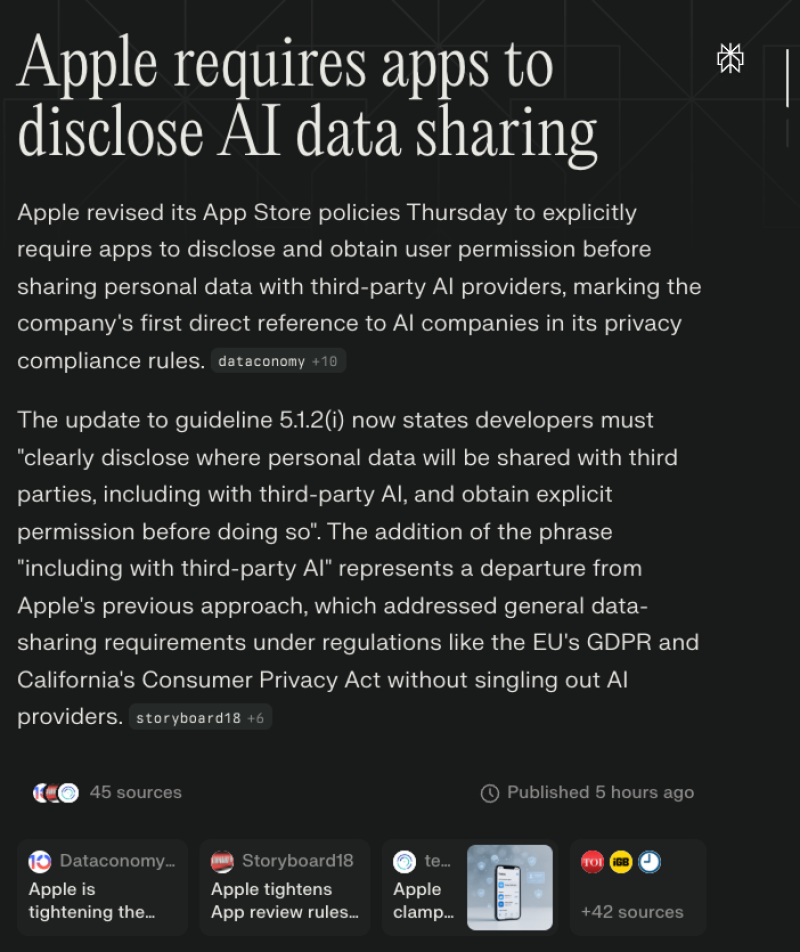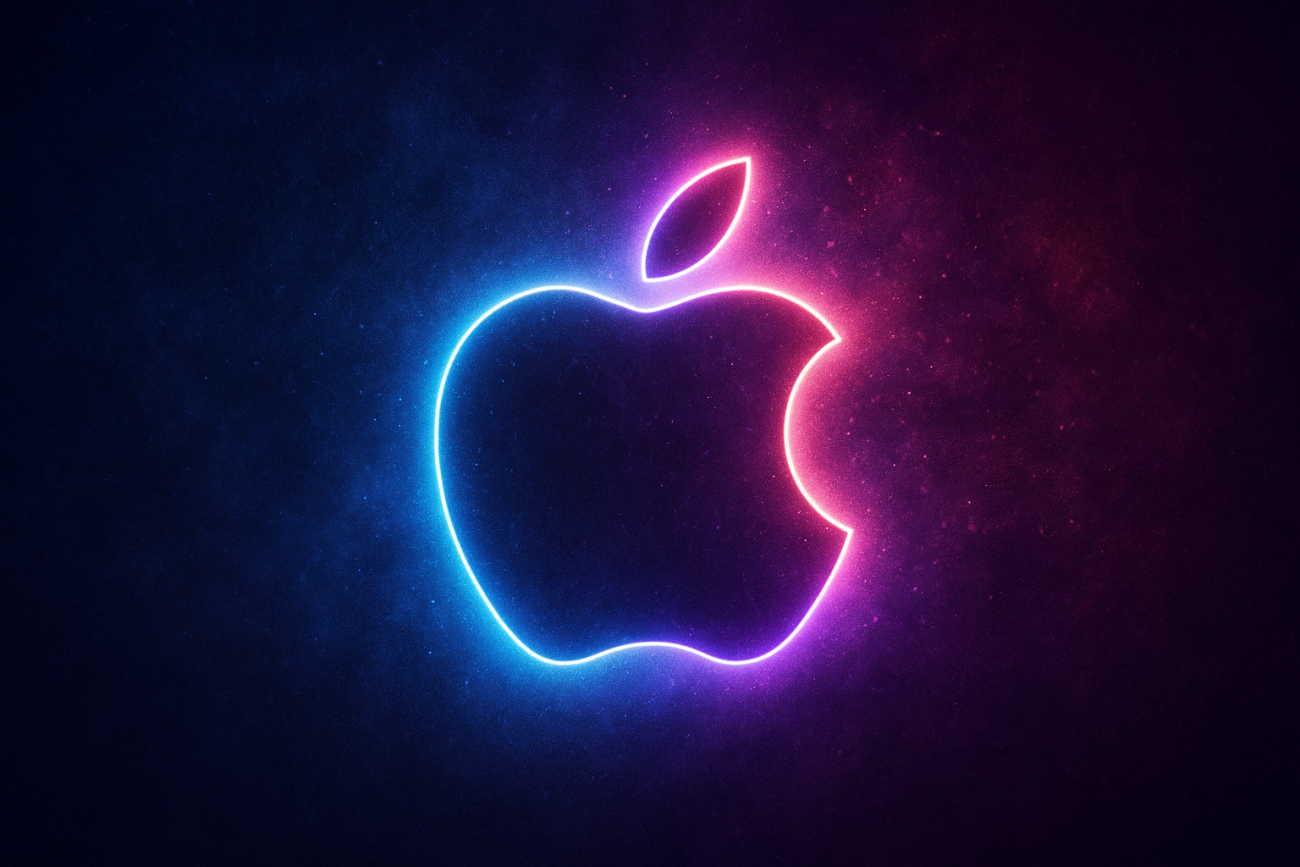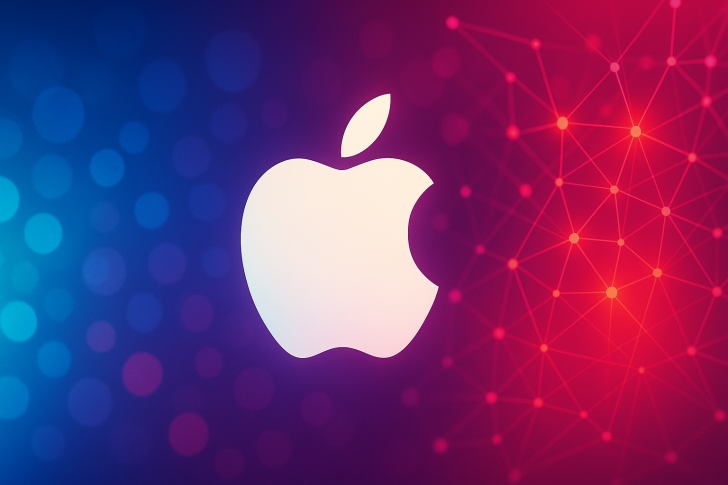Apple just made its boldest move yet on AI privacy by rolling out new App Store requirements that specifically target how apps share data with external AI systems. This update shows Apple's commitment to transparency at a time when AI providers are processing massive amounts of personal information—and regulators worldwide are paying close attention.
The updated policy requires developers to clearly disclose when user data gets shared with third-party AI providers and to ask for explicit permission before any data leaves the app.
Section 5.1.2(i): Apple's First Direct AI Privacy Rule
Apple's updated App Store guideline represents the company's first explicit mention of "third-party AI" in its privacy framework. The new rules are straightforward: developers must communicate clearly about where personal data goes, who processes it, and whether it's being sent to an external AI model. Apps that don't comply risk getting pulled from the App Store.

This marks a clear evolution from Apple's previous approach, where AI-related data flows were only covered indirectly under general privacy rules aligned with GDPR and the California Consumer Privacy Act. By specifically calling out third-party AI providers, Apple is recognizing the rapid growth of external AI APIs and the heightened concerns around how these systems handle private user data.
Why Now? The AI Data Privacy Reckoning
The timing reflects growing global scrutiny of AI data practices. As developers increasingly plug in powerful external AI models—from OpenAI, Anthropic, Google, Meta, and other providers—data frequently leaves the controlled app environment and enters complex machine-learning pipelines. Apple is positioning itself as the privacy-first platform at a moment when trust and transparency are becoming central to the AI conversation.
What Developers Must Do: 3 Key Requirements
- Under the revised rules, developers working with external AI services must now:
- Disclose data-sharing practices clearly and upfront
- Identify the specific AI providers involved in data processing
Secure explicit user consent before transferring any personal information
This may require updates to privacy labels, onboarding flows, data-use explanations, and permission interfaces. Apps relying heavily on AI-driven features will need to invest time ensuring compliance, and ignoring these guidelines could mean removal from the App Store.
Beyond Apple: Industry-Wide Impact
The implications reach far beyond Apple's ecosystem. As one of the world's most influential platform operators, Apple's move will likely pressure other marketplaces—including Google Play—to revise their own AI data-sharing standards. It may also push AI companies to improve their transparency documentation and offer better privacy-preserving tools for developers.

Apple's tightened enforcement represents one of the clearest policy responses to the privacy challenges posed by modern AI systems. By requiring explicit transparency and user permission, Apple is setting a new standard for data governance in the AI era—one that will likely shape how developers and AI companies operate for years to come.
 Peter Smith
Peter Smith

 Peter Smith
Peter Smith


